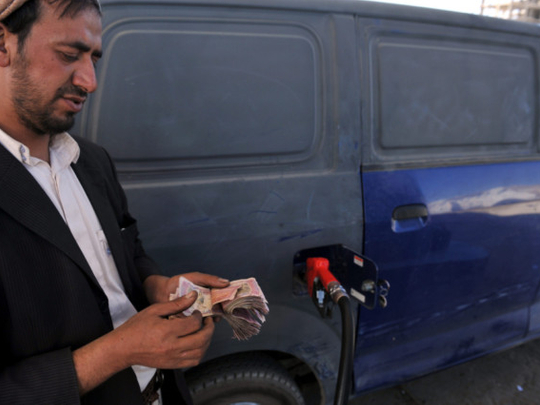
Sana’a: Eight Yemeni soldiers including a senior officer were killed in an ambush by militants while visiting a main oil pipeline that had been destroyed in an earlier attack, the defence ministry said.
The chief-of-staff for Yemen’s central military region in turbulent Maarib province, home to a large portion of the impoverished country’s oil, died when gunmen fired on his vehicle, a security official said.
In a statement, the ministry called the Saturday attack in Marib province a “terrorist ambush,” confirming that the chief-of-staff for Yemen’s central military region, General Nasser Naji Bin Farid, was killed.
Security officials said earlier that they believed the militants in the attack were from Al Qaida. The army began an offensive last week in the restive, oil-rich province east of the capital to target militants who had repeatedly attacked the pipeline and power lines in recent weeks. The officials spoke on condition of anonymity because they were not authorised to release the information.
The militants stole six military vehicles in the ambush.
Yemen’s oil and gas pipelines have been repeatedly sabotaged by Islamist militants or tribesmen since anti-government protests created a power vacuum in 2011, causing fuel shortages and slashing export earnings.
The 430-km pipeline used to carry 110,000 barrels per day from Maarib oil fields in the centre of the country to the Ras Isa export terminal on the Red Sea.
Its long closure last year forced the country’s largest refinery at Aden to shut, leaving Yemen dependent on fuel donations from Saudi Arabia and imports.
Yemen has struggled to restore normality since President Abd Rabbo Mansour Hadi was elected in February following a year of protests that forced his predecessor Ali Abdullah Saleh to step down after 33 years in power.
The return of stability is a priority for the United States and its Gulf allies because of Yemen’s strategic position next to top oil exporter Saudi Arabia and major shipping lanes, and because it is home to a major wing of Al Qaida.
Security forces also foiled a car bomb targetting the director for security operations in the eastern province of Hadramout on Saturday, a third local official told Reuters on condition of anonymity.
Al Qaida in the Arabian Peninsula has made its base in Yemen, and took advantage of the chaos last year in the run-up to and aftermath of Saleh stepping down, even taking over entire towns and areas in the south.
The group has mounted operations in neighbouring Saudi Arabia as well as attempting attacks against the United States, which has stepped up attacks by unmanned aircraft this year.
The US considers the local Al Qaida branch the world’s most active. The U.S. has helped Yemen intensify its campaign against militants.












